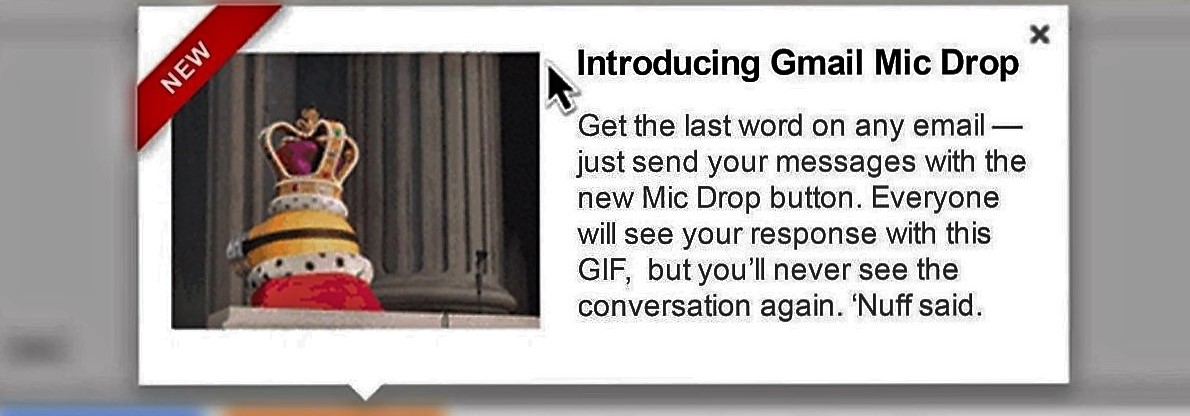There's a great scene in the movie "The Hitchhiker's Guide to the Galaxy" where Trillian gently scolds Zaphod, reminding him that "buttons aren't toys." This, of course, is because Zaphod is child-like in his actions -- impulsive, almost clueless -- even when the outcome of his actions have the potential to be catastrophic. Last week, Google, long known for their fun, inventive April Fool's jokes, required a similar scolding: "email accounts aren't toys."
Put simply, Google replaced the widely-used "send and archive" button in the Gmail interface with the Google Mic Drop button. The Mic Drop feature embedded an animated GIF of a Minion -- a creature from the "Despicable Me" movies -- dropping a microphone into the body of the message before it was sent. Then they removed the ability for the people receiving the message to reply to it. In addition, the sender couldn't retrieve the conversation from their archive. The email thread was, essentially, gone. To make matters worse, there were reports that there was a bug where the GIF was embedded in messages sent normally, without using the Google Mic Drop button. The backlash was swift and, at times, intense. People not only complained about the prank, but some mentioned that the use of the Mic Drop button cost them their jobs.
Even though their intent was innocent enough, Google treating email as a vehicle for a practical joke is the REAL joke. If Google takes anything from this, it's that email is incredibly depended on, even when the email account is offered for free. (Interestingly, Google didn't add the Mic Drop button to users on their paid Google Apps for Work plans.) Email is a ubiquitous, but absolutely VITAL platform. It's required for almost any product or service used in today's working environment, from Facebook, Twitter and Instagram to Slack, Zapier and GitHub. Messing around with someone's ability to use email, much less someone's ability to do their job, is a huge misstep. To their credit, Google removed the button in a matter of hours, but the damage was already done.
It's difficult enough to make products and services work seamlessly together. Turning that into a game is a grave mistake. An issue like this -- where critical services are dependent upon someone else making proper, professional decisions -- is one of the reasons many companies still prefer to set up their own mail servers, and one of the reasons why SmarterMail continues to thrive.
